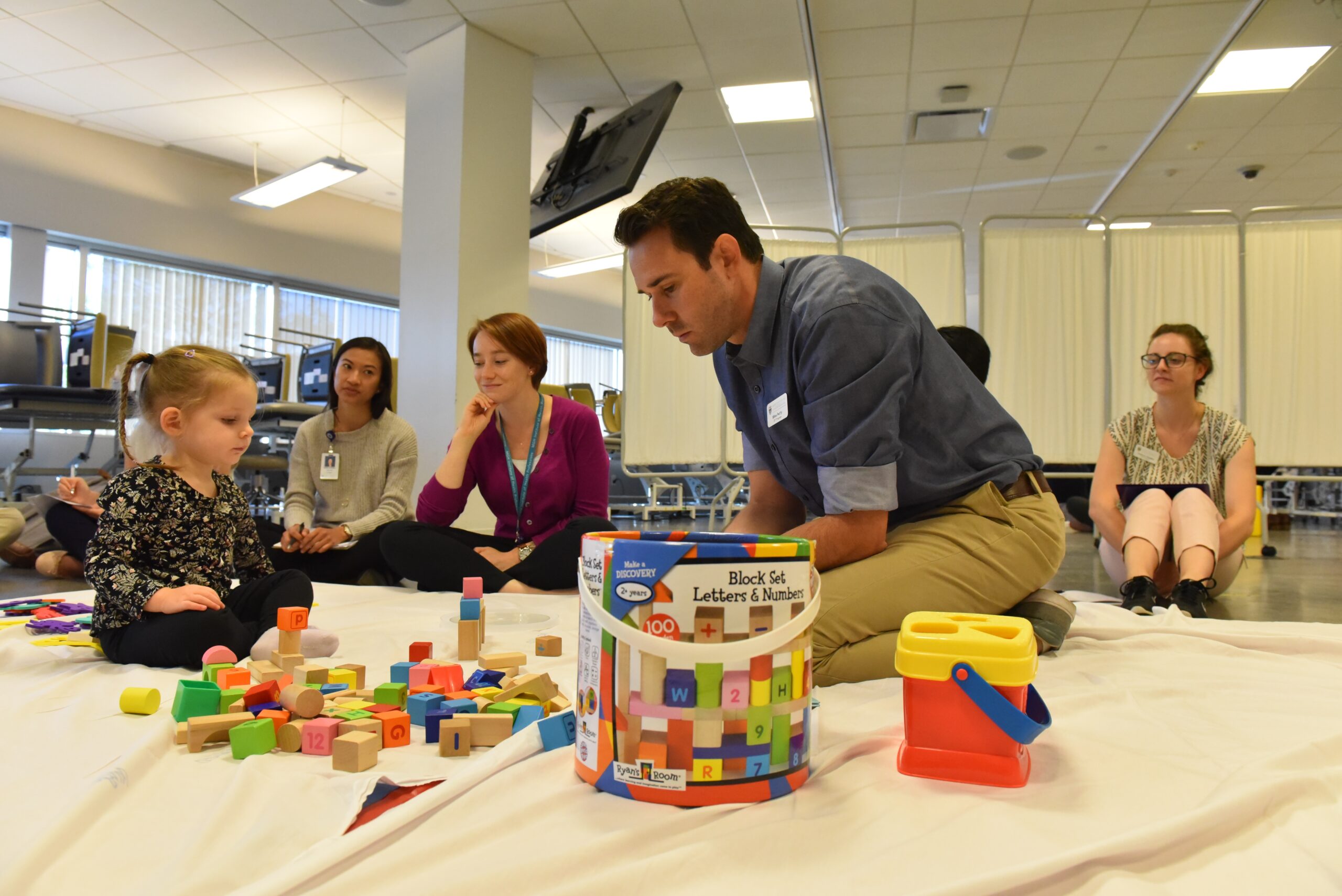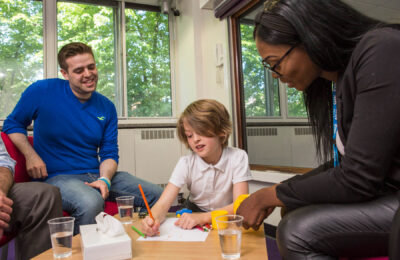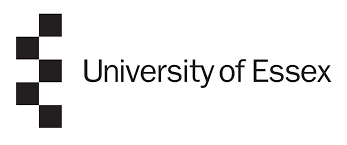
Perinatal, Child, Adolescent and Family Work: a Psychoanalytic Observational Approach (M7, London)
Join us on one of our flagship observation courses and benefit from over 100 years of expertise
This flagship course aims to provide professional development to people working with infants, children, young people and families. The focus is on learning how to notice and reflect on the different emotional dynamics, conscious and unconscious, that underpin development, and impact on our work.
There is a central place in all the studies in the course for considering the impact of feelings of sameness and difference, and about cultural diversity, within ourselves, in our treatment of each other, and in our professional relationships.
This course will provide you with the opportunity to explore unconscious processes which occur within, and between, people across the age range and within, and between, organisations. The infant and young child observations take central place on the course and are rooted in experiential learning about the processes set in motion in the earliest stages of life, which we understand as underlying and informing later psychological development.
You will take modules in infant observation, work discussion, psychoanalytic theory, child development research, young child observation and experiential group (PgDip only). To achieve the MA award, students in the third year will write a dissertation. The course will develop the professional and reflective capacities of students working with children of all ages and with families.
In 2023, we changed the course title to explicitly include perinatal work, reflecting the strong emphasis placed upon very early experience. At that point, we augmented the course curriculum with new theoretical content relating to the perinatal period. This additional material enhances your learning from the two-year infant observation, contributing to the opportunity for in-depth understanding of the baby’s changing modes and patterns of communication and their developing personality in the context of their family and the people around them.
The enhanced course, with its renewed focus on the developing mind of the baby, is highly relevant to those working with any age group, and will also benefit those who are working directly with children under the age of five.
Successful completion of this course is a prerequisite for our clinical course in Child and Adolescent Psychoanalytic Psychotherapy.
This course is delivered in London with the option of studying in-person during the daytime or evenings, or through blended delivery on Saturdays and online. Only the London daytime version of the course is eligible for a Student visa. Further information is provided in the attendance tab below.
This course is also delivered in Belfast, Birmingham, Bristol, Florence, and Milan.
About this course
Infant observation
You will observe a baby in its family home, every week for one hour, for up to two years. You will have one (PgCert) or two (PgDip and MA) years of small group seminars, including a mix of first and second year students wherever possible, learning about early emotional development. It is your responsibility to arrange this observation, but you will be given guidance and support with this task prior to starting the course.
Work discussion
One (PgCert) or two (PgDip/MA) years of mixed first and second year small group seminars where you present detailed observational accounts of your own work, building an understanding of the unconscious dynamics at play at both institutional and interpersonal levels.
Psychoanalytic theory
You will study core psychoanalytic concepts and texts, and their connections with your observation-based learning, with a specific focus on a critical understanding referring to cultural diversity.
Child development research
You will study selected key concepts and theories from a range of research fields – attachment theory, neurobiology, developmental psychology and anthropology.
Psychoanalysis, power and identity
In this part of the year one Theoretical Perspectives module you will explore the development of identity through an intersectional and psychoanalytic lens. You will engage in experiential learning through using non-academic stimuli and materials such as film, literature and music.
Young child observation (PgDip/MA only)
One year of small group seminars, supporting you to observe a pre-school child, in their family or nursery setting, to learn about the emotional meaning of a child’s behaviour as they start to relate to others outside the family. It is your responsibility to arrange this observation, but you will be given guidance and support with this task at the start of your second year of the course.
Experiential group (PgDip/MA only)
An opportunity to experience, observe and reflect on group dynamics as they occur in a regular fortnightly group that you are a member of.
Dissertation (MA only)
Creating a dissertation proposal and building this into a 12,000 word thesis, exploring aspects of your observational studies in the course.
Course length and study modes
You may exit after one year with a Postgraduate Certificate (PgCert) or after two years with a Postgraduate Diploma (PgDip). To achieve the MA award, you will write a dissertation in the third year.
The first two years are a prerequisite for our clinical training as a child and adolescent psychoanalytic psychotherapist. The first year may also act as a prerequisite for clinical training as a psychodynamic psychotherapist working with children, young people, and families.
You can choose to study the London course in-person during the daytime or evenings, or as a blended course mixing in-person teaching on Saturdays with online learning.
Modules
Module 1: Infant Observation 1
- Year one
- FHEQ level 7
- 20 credits
- Compulsory module
- Module lead: Margaret Lush
Module aims
The aims of the module are to:
- help you to conduct the search for a suitable observation family in a sensitive and appropriate manner
- help you reflect on the emotional experience of seeking an observation family and meeting potential families and professionals in the course of this process, including taking on board issues of difference in culture and background
- enhance your capacity to describe in fine detail your own experience in looking for an observation family and, if observations are undertaken, the behaviour and interactions of the baby with the main carer and family members, including paying attention to the minutiae of facial expression, tone of voice and style of movement
- help you to become a receptive observer of babies as they develop within their family context, including taking on board issues of difference in culture and background
- establish your role as observer within the family, developing the capacity to remain attentive, but refraining from giving advice or actively intervening
- make use of the Psychoanalytic and Child Development frameworks for thinking that you are learning about in your other modules
- notice and understand the unconscious processes and communication that may lie behind the behaviour you are observing
Module assessment
You are required to submit three infant observation assessment tasks, each of 4,500 words.
Module 2: Work Discussion 1
- Year one
- FHEQ level 7
- 20 credits
- Compulsory module
- Module lead: Alex Datnow
Module aims
The aims of the module are to:
- facilitate the writing of detailed reports of interactions at work in the first person, to include your own actions, feelings and comments as well as those of the Under 5s, children, young people, parents and colleagues you are working with
- carry over the observational stance into the study of interactions and behaviour in the workplace
- deepen critical awareness of the impact that difference in identity and experience can make – this includes consideration of social class, race, sexual orientation, gender, religion, disability and age
- reflect on the professional decisions you have made
- facilitate an extension in your frame of reference and critical understanding, so that interventions can be based on a fuller appreciation of the emotional factors at work in relationships and on an understanding of unconscious processes and communication across a range of multi-disciplinary and multi-agency roles, settings, and client groups
- study the emotional experience in interactions between workers and service users (for example, the relationship between nursery worker and children, teacher and students, or social worker and client where feelings aroused by the task or role may influence outcomes or even interfere with the professional task
- formulate a coherent hypothesis linked with relevant evidence.
- have a developed capacity for independent study
Module assessment
You are required to submit a work discussion paper of 4,000 words, of which approximately 1,000 words should be observational material.
Module 3: Theoretical Perspectives
- Year one
- FHEQ level 7
- 20 credits
- Compulsory module
- Module lead: Alex de Rementeria
Module aims
The aims of the module are to:
- introduce key psychoanalytic concepts and their development
- provide opportunities for both didactic and experiential learning in relation to psychoanalytic theory
- illustrate the relevance of the psychoanalytic conceptual framework to observational experience and to the understanding of relationships in the workplace context
- understand how psychoanalytic concepts and understanding are relevant to work with people of all ages from the perinatal period onwards
- introduce key contemporary child development research
- develop a questioning and evaluative approach to the research studied
- illustrate the relevance of child development research to key questions concerning social and child-care issues
- encourage encounters and experiences that provide opportunities to reflect upon and contain powerful emotional experiences relating to identity, with the aim of increasing reflexivity within participants
- develop a greater awareness of how identity shapes the observational frame both consciously and unconsciously
- develop a greater awareness of how aspects of identity find consonance and conflict within oneself and with the identity of the other
Module assessment
You are required to submit a 1,800 word psychoanalytic theory paper and 1,800 word child development research paper.
Module 4: Psychoanalytic Observation
- Year two
- FHEQ level 7
- 20 credits
- Core module
- Module lead: Alex de Rementeria
Module aims
The aims of the module are to:
- continue to become receptive observers of babies as they develop within their family context
- enhance your capacity to describe in fine detail the behaviour and interactions of the baby with the main carer and family members, including paying attention to the minutiae of facial expression, tone of voice and style of movement
- sustain your role as an observer within the family, developing the capacity to remain attentive, but refraining from giving advice or actively intervening
- make use of the Psychoanalytic and Child Development frameworks for thinking that you are learning and learned about in the first year in understanding your experience of infant observation
- notice and understand the unconscious processes and communication that may lie behind the behaviour you are observing
- reflect on the experience of ending your observation after two years
- manage the ending of the observation with sensitivity and clarity in relation to the observation family
- understand the centrality of observing and of the observer position in the development of psychoanalytic theory
Module assessment
You are required to submit a 4,600 word infant observation paper, of which approximately 1,000 words should be observational material.
Module 5: Work Discussion 2
- Year two
- FHEQ level 7
- 20 credits
- Core module
- Module lead: Alex Datnow
Module aims
The aims of the module are to:
- extend skills in writing detailed reports of interactions at work in the first person, to include your own feelings, actions and comments as well as those of the children, adolescents, parents and colleagues you are working with
- contribute sensitively and creatively to seminar discussion of other people’s work situations and interactions
- carry over the observational stance into the study of interactions in the workplace including group interactions and the impact of different client groups on organisational functioning in different settings
- address group processes in the work setting, and institutional factors which are influencing the setting and your own role (in either benign or maladaptive ways)
- deepen awareness of the impact that difference in experience and identity can make – this includes consideration of social class, race, sexual orientation, gender, religion, disability and age
- deepen the capacity to reflect critically on complex professional decisions you have made
- develop further your frame of reference and understanding, so that interventions can be based on a fuller appreciation of the emotional and unconscious factors in work relationships within a multidisciplinary and multi-agency context
- develop further the study of emotional interactions between you and service users (for example, the relationship between nursery worker and under 5s, teacher and students, or social worker and client, where feelings aroused by the task or role may interfere or influence decisions)
- provide an opportunity to learn about group life by studying the processes at work in the ‘here and now’ in the experiential seminar group of which you are a member
- develop a sophisticated capacity to observe and reflect on experience and learn from it in a group context
- reflect on your own position in group life
Module assessment
You are required to submit a 4,000 word work discussion paper, of which approximately 1,000 words should be observational material.
Module 6: Young Child Observation
- Year two
- FHEQ level 7
- 20 credits
- Compulsory module
- Module lead: Margaret Lush
Module aims
The aims of the module are to:
- develop skills in observing a young child, establishing the different boundaries of the observational role
- study the growth of mind and personality, with critical reference to relevant psychoanalytic and child development research, with a particular focus on the child’s increasing capacity to make relationships, to symbolise, use language and play
- promote awareness and sensitivity to a range of young children’s experiences in their families and/or in other early years settings such as nursery, in the varied ethnic, cultural and socio-economic observational settings presented in the seminar
- participate sensitively in seminar discussion of observations
Module assessment
You are required to submit a 4,000 word young child observation paper, of which approximately 1,000 words should be observational material.
Module 7: Dissertation
- Year three
- FHEQ level 7
- 60 credits
- Core module
- Module lead: Alex de Rementeria
Module aims
The aims of the module are to:
- develop an individual hypothesis built on particular themes, issues, interests and preoccupations arising out of the learning from the earlier part of the course
- facilitate conducting literature searches and writing literature reviews
- facilitate developing a dissertation proposal, bearing in mind ethical and practical constraints
- support the writing of a well-structured dissertation
- foster the capacity for independent learning
Module assessment
You are required to submit a dissertation 12,700 words.
Who is this course for?
This course is for anyone working with infants, children, young people and their families with an interest in emotional development and in the complexities of the relationships that form within such work.
Course details
To undertake this course, you need to have:
- a minimum of the equivalent of twelve months full-time experience of working with children, young people and their families. Approximately half of this work must have been completed within the last five years.
- an interest in learning about unconscious processes, emotional development, observation, and psychoanalytic thinking
- a willingness to engage in thinking about the way that culture and individual/group identity shape emotional development
- a willingness to engage in experiential learning
- a first degree or the ability to demonstrate that you can meet the academic demands of the course and/or have completed one year of our Emotional Care of Babies, Children, Young People and Families graduate diploma
For the duration of the course, you need to be working directly with children, young people, parents or families, usually for a minimum of one day a week for students with considerable prior experience or two days a week for students with the minimum of prior experience.
To meet the academic requirements of this Master’s, your work must be in an organisation with a safeguarding lead.
You must be in a working role which meets all the course requirements prior to enrolment.
International students
Please note: if you require a Student visa to study in the UK, you will only be able to apply for the London daytime version of this course.
Tuition fees
Home (2026/27)
£7,140 per year (years one and two)
£3,440 (year three)
International (2026/27)
£14,630 per year (years one and two)
£7,040 (year three)
Annual fee increases
Tuition fees are charged for each year of your course. If your course is longer than one year, the fees may be subject to annual inflationary increases. For more information on tuition fee changes, including paying for tuition fees, please refer to our tuition fee guidance.
Funding
Student loans
If you are studying a Master’s or Doctoral level course, you may be eligible for a postgraduate loan from the UK government. Please check our student loans guidance for eligible courses and criteria.
Funding for current students
We offer several funding options to support current students who need financial assistance during their studies. Please refer to our financial support guidance for more information.
Assessment
In the first two years of the course there are written assessment tasks relating to each of the modules studied. In both years, the written assessment tasks require the integration of detail from observational and work discussion material with theoretical concepts drawn from psychoanalysis and other fields of child development theory.
In the first year, you will also complete short essays on concepts studied in psychoanalytic theory and in child development research. Progression in the course is dependent upon passing this assessed work.
Dissertation
To gain the MA, you need to pass the PgDip and then undertake a third year of study to complete a dissertation.
In this dissertation year, you attend a specific seminar for the first term to develop your dissertation proposal. This proposal is based on a question or theme drawn from your earlier studies in the course. In this thesis you will draw upon observational material gathered through your infant observation, young child observation or work discussion studies. Once the proposal has been accepted you complete the dissertation through personal study, supported by your dissertation supervisor.
Attendance
This course is studied on a part-time basis, with three different study options to suit your schedule and learning preferences. Attendance times and formats vary depending on which version you choose.
London daytime (M7, daytime)
Study in-person on Wednesdays at the Tavistock Centre.
Year one
- Wednesdays from 10am to 3.15pm
Year two
- Wednesdays from 10am to 4.45pm
London evening (M7, evening)
Study in-person on Monday and Wednesday evenings at the Tavistock Centre.
Year one
- Monday evenings from 7 to 8.15pm
- Wednesday evenings from 7 to 8pm and 8.15 to 9.15pm
Year two
- Monday evenings from 7 to 8.15pm and 8.30 to 9.45pm
- Wednesday evenings from 7 to 8pm and 8.15 to 9.15pm
London Saturday (M7, Saturday)
This blended version combines in-person teaching on Saturdays at the Tavistock Centre with online learning. In-person teaching takes place across five fortnightly Saturdays each term. The online components include weekly online seminars and recorded lectures.
Year one
- Fortnightly Saturdays in-person at the Tavistock Centre from 9.30am to 2pm or 9.30am – 3.15pm on seven Saturdays during the year
- Weekly Thursday evening online seminars from 7 to 8.15pm
Year two
- Fortnightly Saturdays in-person at the Tavistock Centre from 9.30am to 3.30pm
- Weekly Thursday evening online seminars from 7 to 8.15pm
- Fortnightly Monday evening online seminars from 7 to 8.15pm
Year two also includes an experiential event in the Autumn Term held over two Saturdays (either in-person or online).
Observation
You will also need to set aside one hour each week for observation of an infant and/or young child during the first and second years of the course. It is your responsibility to arrange these observations, but you will be given guidance and support with this task prior to starting the course.
Some students are unable to complete the required number of infant observations by the submission date for their second year assessment task. If you find yourself in this position, it is possible to carry on until you do have the required number but you will need to continue in your infant observation seminar and there is an additional charge for this.
Dissertation
If you choose to continue to the third year and write a dissertation, you will be taught through a combination of seminars and workshops alongside one-to-one supervision on your thesis.
International students
Please note: if you require a Student visa to study in the UK, you will only be able to apply for the London daytime version of this course.
Graduates have used this course to deepen and develop their work with children and families and apply their practical observation skills and a psychoanalytic lens to their practice in a range of professional contexts, including their current work and volunteering settings.
Many graduates have used this course as a prerequisite for training as a child and adolescent psychotherapist on our Child and Adolescent Psychoanalytic Psychotherapy professional doctorate.
Some have progressed to senior practitioner and specialist posts within their own professions and continue to develop their psychoanalytic practice through CPD work discussion groups, using their new skills to increase confidence and potential promotion opportunities.
Application support and deadlines
If you have questions about our postgraduate courses, admissions process, or the specifics of your application, you can book a one-to-one online meeting with a member of our admissions team.
There are a number of important application deadlines associated with our postgraduate courses, however we encourage you to apply as early as possible, as spaces on our courses are limited and can be competitive.
Applications for this course are expected to close on the following dates:
- Tuesday 30 June 2026: International applicant student visa deadline*
- Sunday 26 July 2026: Summer application deadline
*Please note: only the London daytime version of the course is eligible for a Student visa.
Why study with us?
Infant observation was pioneered at the Tavistock Clinic and is a hugely effective method used by clinicians, worldwide. Join us and benefit from our expertise and develop your skills in detailed observation of infants and young children. You will improve your understanding of human development informed by a psychoanalytic approach and child development research.
The application of observation skills to understanding your task and interactions in your work setting will also be central to your learning on the course. This course will provide you with a wider frame of reference for thinking about current work and enhance your capacity to make decisions about your career development.
This course, or its equivalent, is a prerequisite for training as a child and adolescent psychotherapist on our Child and Adolescent Psychoanalytic Psychotherapy professional doctorate.
Testimonials
Course facilitators
Validations and accreditations
This course is validated by the University of Essex.
Apply now
Start your application for the September 2026 cohort of this course.
Please note: you may see the M7 course also referred to as PAMATP007 in communications from our application system.
Recommended courses
Explore courses to study beforehand
-
 Graduate diploma Eligible for Student Visa
Graduate diploma Eligible for Student Visa
Emotional Care of Babies, Children, Young People and Families (EC1)
-
 Postgraduate certificate
Postgraduate certificate 
Child, Adolescent and Family Mental Wellbeing: Multidisciplinary Practice (ED24, online)
Explore courses to study next
-
 Professional doctorate
Professional doctorate 
Child and Adolescent Psychoanalytic Psychotherapy DPsych (M80)
